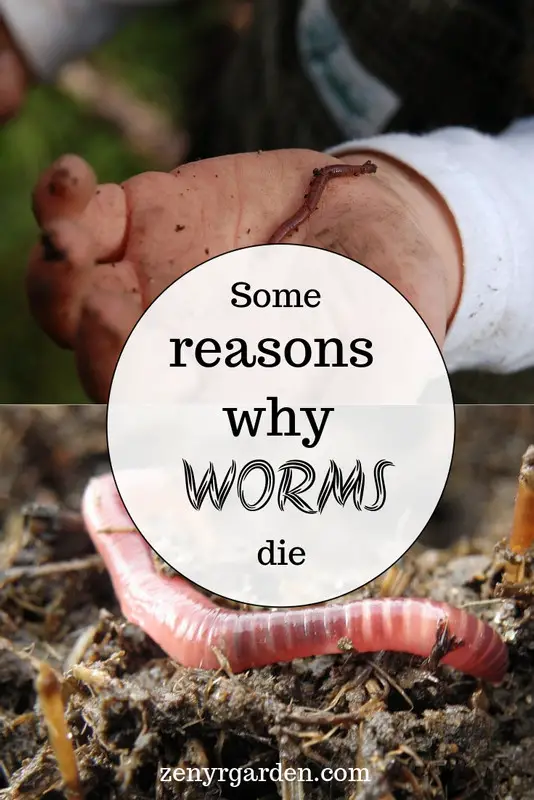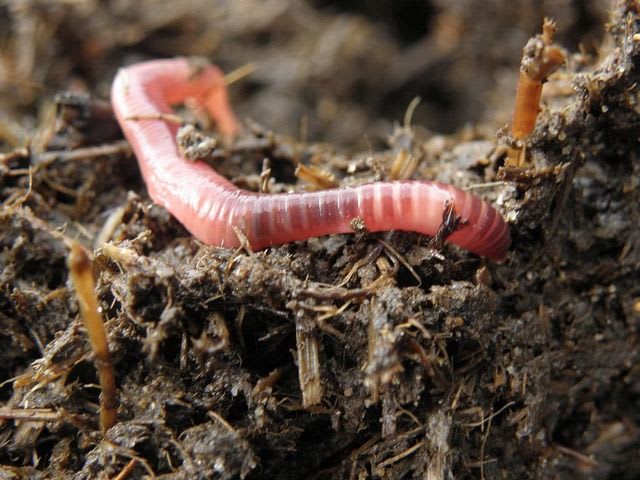Too much acid in the living environment may cause worm to die because of their very sensitive bodies. Overfeeding the worms may also create a heat issue, which could also make it uncomfortable for these little guys.
Let's see some other aspects of why this might happen and some easy fixes to make the worms happier.
Here are some possible reasons why worms die:
Reason #1: Not Enough Air
Although worms mostly bury themselves under dirt, they do exchange oxygen through their skin. If the living environment is packed too tightly with little or no air, the worms may die.
This could happen during shipping or transit if the packaging is not breathable and therefore does not allow good air to pass through. In worm bins, if the lid is put on too tightly, it may block some oxygen exchange in and out.
In this case, if you're shipping the worms, make sure to put them in a breathable bag. If you're keeping them in totes or wooden bins, drill holes near the top of the bin so the air can blow through, making it easier for the worms to breath.
Reason #2: Too Much Moisture
The CO2 breathed out by the worms can get mixed with the excess water in the bin, creating a slightly acidic environment which could kill the worms. Although worms like it a bit moist, they won't do too well in soggy standing water condition.
Some people say the worms may drown in wet bins. But according some raiser's experience, it's more often the acid issue that kill these sensitive creatures. Their skin are as soft as the one lining inside the sides of our mouth. So be careful with the excess moisture.
To fix this, you can drill holes at the bottom of the bin to let the liquid drain out. You could also put a tray at the bottom or use a double-bin system to catch the worm leachate. From this liquid then, we can make worm tea to spray for the plants. So nothing goes to waste.
Reason #3: Too Much Food
Overfeeding first of all creates a heat issue inside the worm bin. This is because of the microbial activity all around the decaying organic matter. While the bacteria eat, they generate quite a bit of heat.
In fact, worms eat the bacteria on these foods. As the inside bin heats up, there might be excess moisture. Some people feed the worms with horse manure (that hasn't been through the "heat" phase). The manure then gets hot when put inside the bin. The worms can't handle this very well.
So when starting the worm bin, let the kitchen scraps or food waste sit for about 3-4 days or so to cool down before feeding. Put in just about only 1-2 days worth of foods for the worms.
Most worms eat about half their body weight a day. And some like African Nightcrawlers can eat up to 2 times their weight per day. So for a pound of worms, a pound of food would be fine for a day.
If you're feeding them with cow manure or horse manure, make sure that we have at least past that high "heat" phase when lots of microbial activity is going on in there–but also not too far down the road, because they'll be little nutrients left for our worms.
Worms will be happy within the temperature range of 65-80F (18-26C). Any more or less might irritate them or freeze them to death. So don't kill your worms with too-much-food kindness.
Here is another article about worms you might want to check out later:
The possible disadvantages of vermicomposting are presented here:
Share or pin this post!


